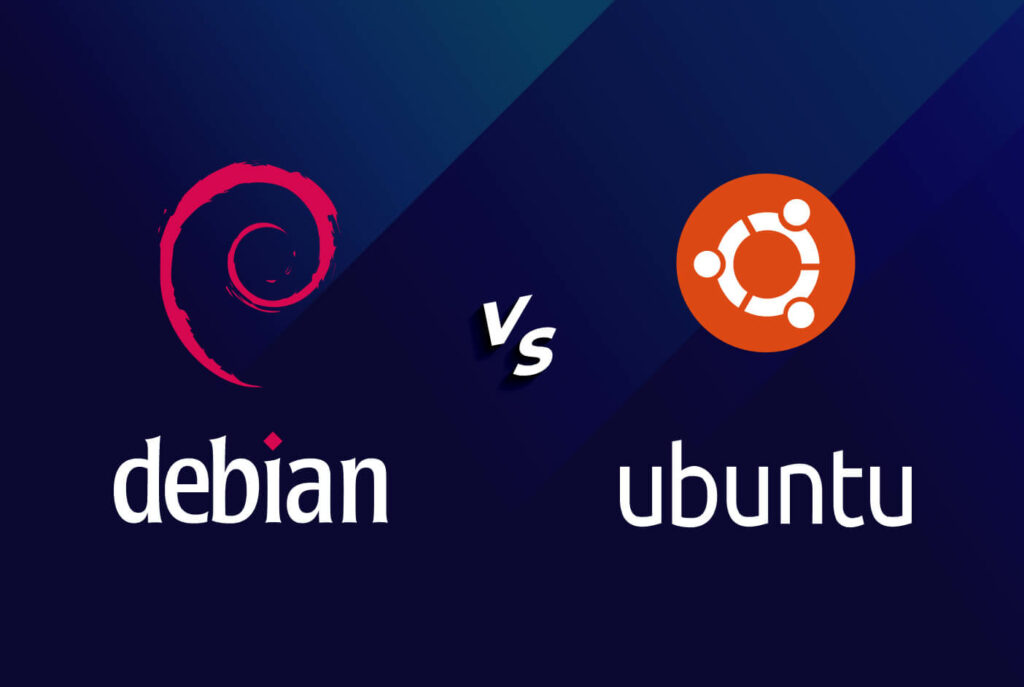Debian vs. Ubuntu: Choosing the Best Linux Distribution for Your Computing Needs
Linux distributions offer a wide range of options for users seeking a powerful and flexible operating system. Among the most popular distributions are Debian and Ubuntu, both known for their stability, versatility, and extensive communities. In this blog post, we will compare Debian and Ubuntu to help you decide which Linux distribution is the best fit for your laptops, desktops, and servers. By exploring their key differences and strengths, you can make an informed choice that aligns with your specific needs.
I. Debian: Stability and Versatility
Debian, the parent distribution of Ubuntu, is renowned for its focus on stability and reliability. It follows a strict release cycle, thoroughly testing software packages before including them in its repositories. Debian offers three main branches: Stable, Testing, and Unstable. The Stable branch is ideal for servers and production environments, while the Testing and Unstable branches provide more up-to-date software packages for users who desire the latest features.
Advantages of Debian
- Rock-solid Stability: Debian Stable is highly reliable, making it a popular choice for servers and systems that require uninterrupted operation.
- Wide Hardware Support: Debian provides excellent hardware compatibility, ensuring that it runs smoothly on a wide range of devices.
- Vast Software Repository: With its extensive software repository, Debian offers a vast collection of packages that cater to various needs.
- Advanced Package Management: Debian utilizes the advanced APT package management system, allowing for easy package installation, updates, and dependency resolution.
II. Ubuntu: User-Friendly and Rich Ecosystem
Built upon Debian’s foundation, Ubuntu has gained widespread popularity for its user-friendly approach and extensive ecosystem. Canonical, the company behind Ubuntu, focuses on delivering a polished and intuitive desktop experience while providing long-term support for both desktop and server editions.
Advantages of Ubuntu
- User-Friendly Interface: Ubuntu features a user-friendly interface and streamlined installation process, making it accessible for users transitioning from other operating systems.
- Extensive Software Collection: Ubuntu’s software repository offers a wide selection of applications, including popular software packages and developer tools.
- Regular and Long-Term Support: Canonical releases new Ubuntu versions every six months, providing regular updates and bug fixes. Additionally, Long-Term Support (LTS) versions offer extended support for up to five years, making them ideal for stable environments.
- Strong Community and Commercial Support: Ubuntu benefits from a large and active community, with extensive documentation, forums, and support channels. Canonical also offers commercial support for enterprises that require additional assistance.
10 Compelling Reasons to Choose Ubuntu Linux as Your Operating System
III. Choosing the Best Fit for Your Needs: When deciding between Debian and Ubuntu, consider the following factors
- Stability vs. Latest Features: If stability is a top priority, Debian’s Stable branch is an excellent choice. However, if you prefer access to the latest software and features, Ubuntu’s regular release cycle and Testing branch may be more suitable.
- User-Friendliness: If you prioritize a polished and user-friendly interface, Ubuntu provides an excellent out-of-the-box experience, making it a great choice for beginners and users transitioning from other operating systems.
- Hardware Compatibility: Both Debian and Ubuntu offer strong hardware compatibility. If you have specific hardware requirements, it is advisable to check compatibility with your chosen distribution.
- Community and Commercial Support: Ubuntu benefits from a large and active community, while Debian has a dedicated and experienced user base. Consider your need for community support or the availability of commercial support for your chosen distribution.
- Community Engagement: Both Debian and Ubuntu have vibrant and active communities. Debian has a long-standing reputation for its community-driven development process and emphasis on open-source collaboration. Ubuntu, backed by Canonical, has a strong community presence with a focus on user support, forums, and community events. Consider the level of community engagement and the type of support you prefer when making your decision.
- System Requirements: Take into account the system requirements of your laptops, desktops, or servers. Debian’s minimalistic approach and flexibility make it suitable for older or resource-constrained systems. Ubuntu, with its emphasis on a polished desktop experience, may require more robust hardware specifications to run optimally. Consider the hardware you have available and choose the distribution that aligns with your system’s capabilities.
- Package Availability and Compatibility: While Debian and Ubuntu share the same package management system (APT), there may be differences in the availability and compatibility of specific software packages. If there are specific applications or packages critical to your workflow, check their compatibility with your chosen distribution to ensure a smooth installation and usage experience.
- Long-Term Support Strategy: If you require a distribution with a long-term support strategy, Ubuntu’s LTS releases provide extended support and stability for up to five years. This is particularly valuable for enterprise environments or systems that require predictable and long-term maintenance. Debian’s stable releases also offer long-term support, although the support duration may vary.
- Customizability: Both Debian and Ubuntu offer a high degree of customizability. However, Debian’s minimalistic approach allows for more fine-grained control and customization, making it a preferred choice for advanced users and system administrators. Ubuntu, while still customizable, provides a more streamlined and user-friendly experience out of the box.
- Personal Preference: Last but not least, personal preference plays a significant role in the decision-making process. Take the time to explore and experiment with both distributions. Consider your comfort level with the interface, the availability of software packages you frequently use, and the overall experience each distribution offers. Your own preferences and familiarity with the distribution will contribute to your satisfaction and productivity.
Debian and Ubuntu are both powerful and versatile Linux distributions, each with its own strengths and target audience. Debian focuses on stability, reliability, and a vast software repository, while Ubuntu provides a user-friendly interface, regular updates, and a rich ecosystem. When choosing between the two, consider your specific needs, whether it’s stability, user-friendliness, access to the latest features, hardware compatibility, or community and commercial support. Ultimately, your decision should align with your requirements and preferences, ensuring a seamless experience on your laptops, desktops, or servers.












